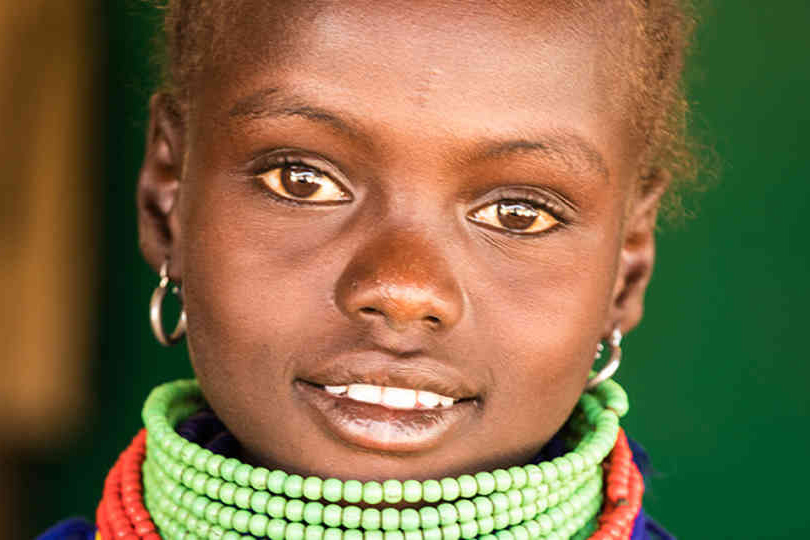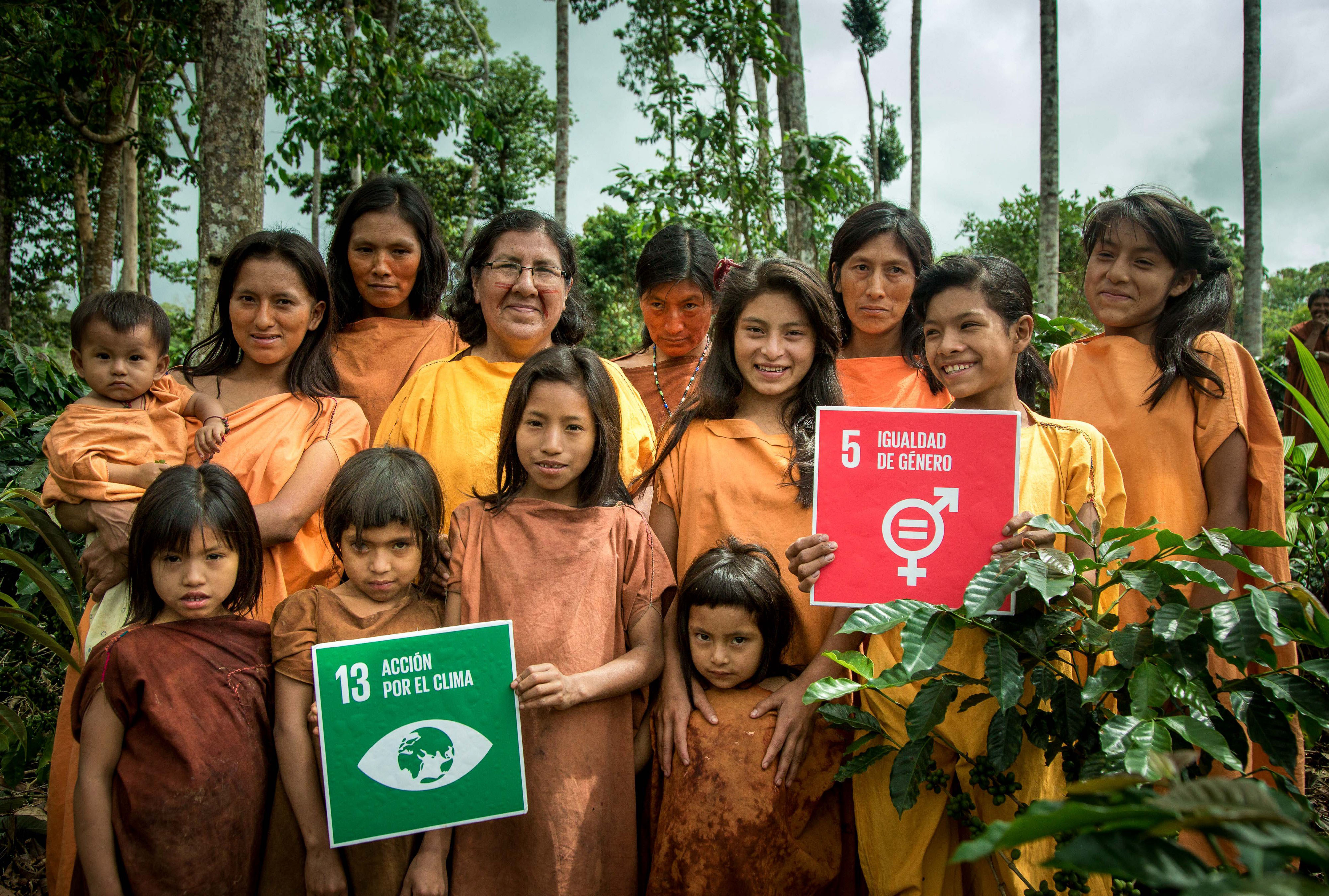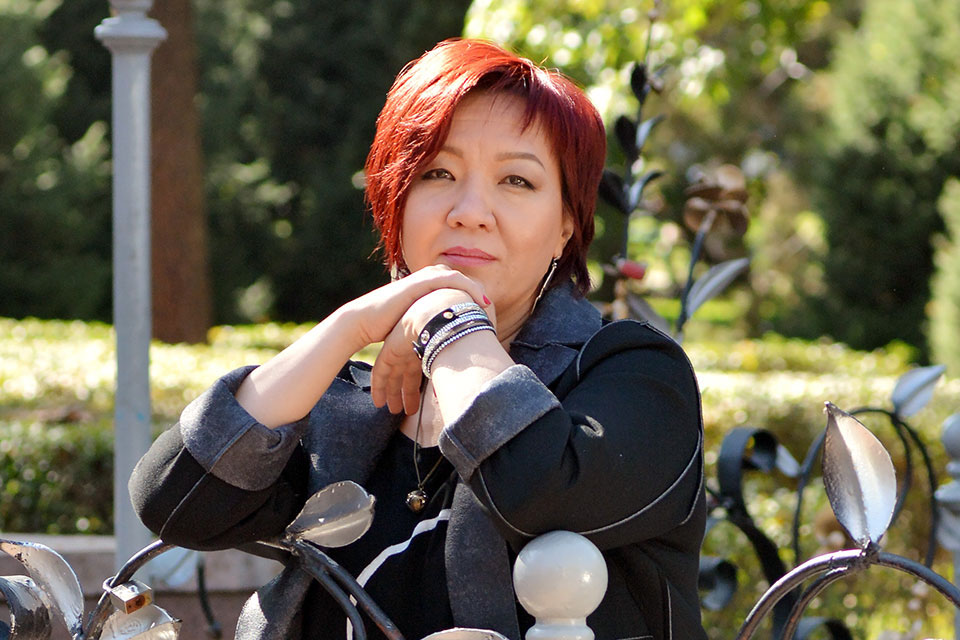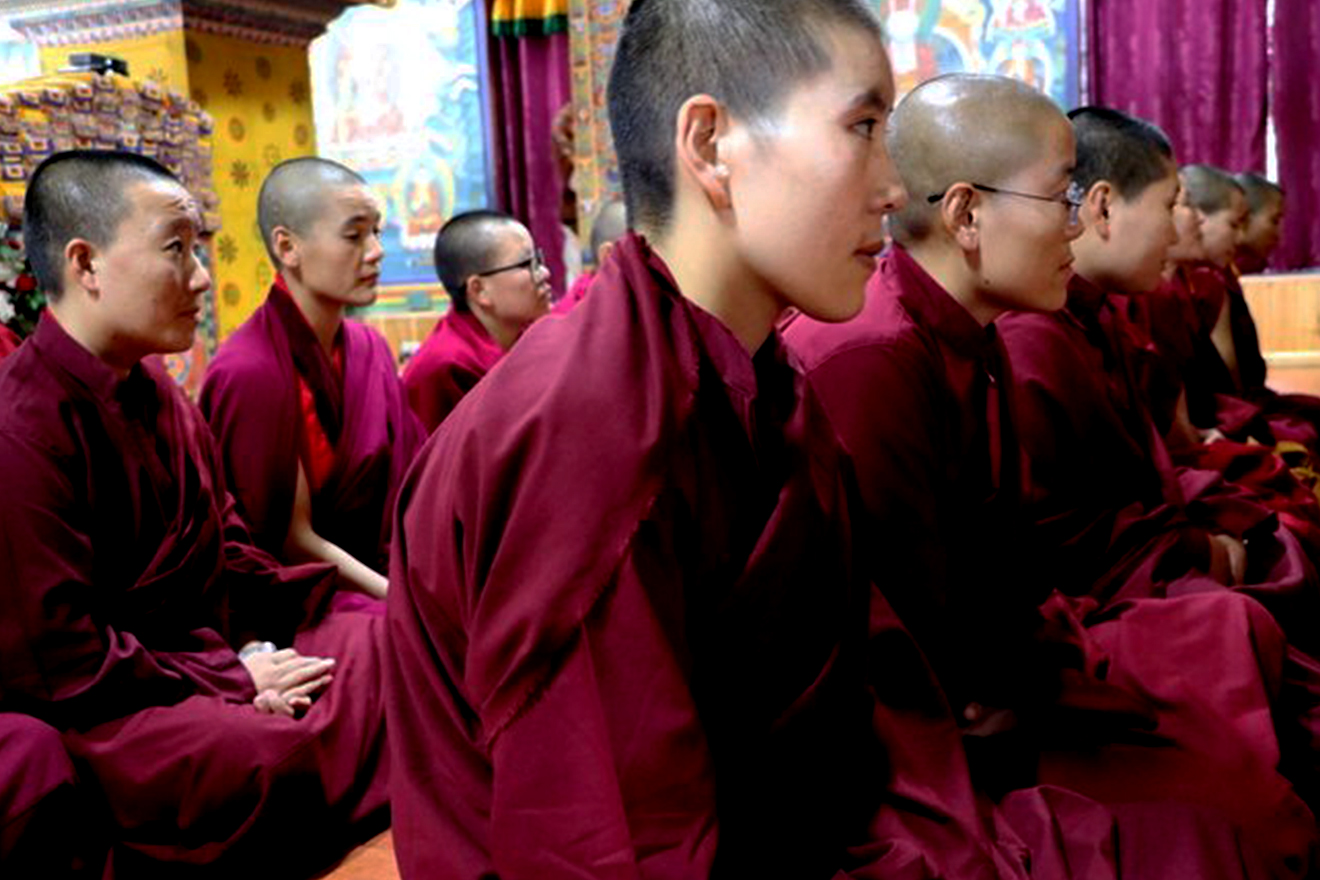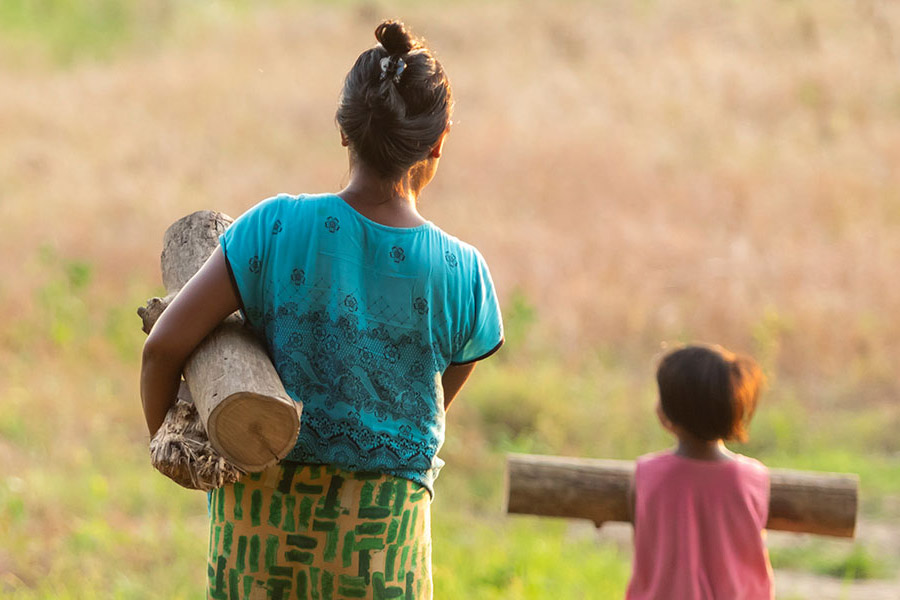Access to health is a basic right, one that is central to a life of dignity. Maternal health is still one of the biggest concerns worldwide. In a three-part series, UNOPS explores the trials, triumphs and hopes of a community that live in Turkana, one of Kenya’s poorest counties.
The world went orange: Putting a spotlight on ending violence against women
Wael Abu Ismael, Freeh Abu T’ema and Mossa Abu Taema are ambassadors of change to end early marriages in Khan Younis, a border town in the Gaza Strip, Palestine, where early and child marriages are common. They have undergone a training delivered by a community-based organization, the Future Brilliant Society, as part of UN Women’s Regional Men and Women for Gender Equality Programme. The ambassadors have prevented early marriages in 50 families and counting.
Violence against women is one of the biggest violations of human rights and a major impediment to achieving the Sustainable Development Goals. Violence against women and girls is preventable if we address the risk factors and underlying harmful social norms that perpetuate and excuse violence, and if hold perpetrators accountable.
Consent is active, given freely, informed, specific and reversible. Creating a culture of consent requires all of us to consciously shift the way we engage with others. Use consent to create a safe sexual space.
One story about rape is one story too many.
Rape culture is the social environment that allows sexual violence to be normalized and justified, fueled by the persistent gender inequalities and attitudes about gender and sexuality. Naming it is the first step to dismantling rape culture. From the attitudes we have about gender identities to the policies we support in our communities, we can all take action to stand against rape culture.
Ajna Jusić, 26 years old, is the President of the Forgotten Children of War Association, a psychologist and a feminist from Sarajevo, Bosnia and Herzegovina.
For the 16 Days of Activism against Gender-Based Violence, from 25 November to 10 December, and under the umbrella of the Generation Equality campaign to mark the 25th anniversary of the Beijing Declaration and Platform for Action, UN Secretary-General’s UNiTE by 2030 to End Violence against Women campaign is calling upon people from all walks of life, across generations, to take our boldest stand yet against rape. It’s time to take a stand to dismantle rape culture.
100 years ago, the ILO adopted the first-ever international standard on maternity protection.
I am Generation Equality because... I want to create a better world where everyone is living equally and is respected, regardless of their gender, sex and sexual orientation.
As much as half of the world’s work is unpaid. And most of it is done by women. This imbalance not only robs women of economic opportunities. It is also costly to society in the form of lower productivity and forgone economic growth. It follows that a fairer allocation of unpaid work would not only benefit women, but would also lead to more efficient work forces and stronger economies. An IMF study finds that unpaid work declines as economic development increases particularly because there is less time spent on domestic chores.
Violence against women and girls is one of the most widespread, persistent and devastating human rights violations. The theme for the 2019 International Day for the Elimination of Violence Against Women is ‘Orange the World: Generation Equality Stands Against Rape,’ and for the next two years, the UN Secretary-General’s UNiTE to End Violence against Women campaign will focus on the issue of rape. As in previous years, the International Day will mark the launch of the 16 days of activism that will conclude on 10 December, which is International Human Rights Day.
Twenty-five years ago, the world was a different place. Incredible progress has been made in so many areas. So why haven’t we seen as much progress for women’s health and rights?

